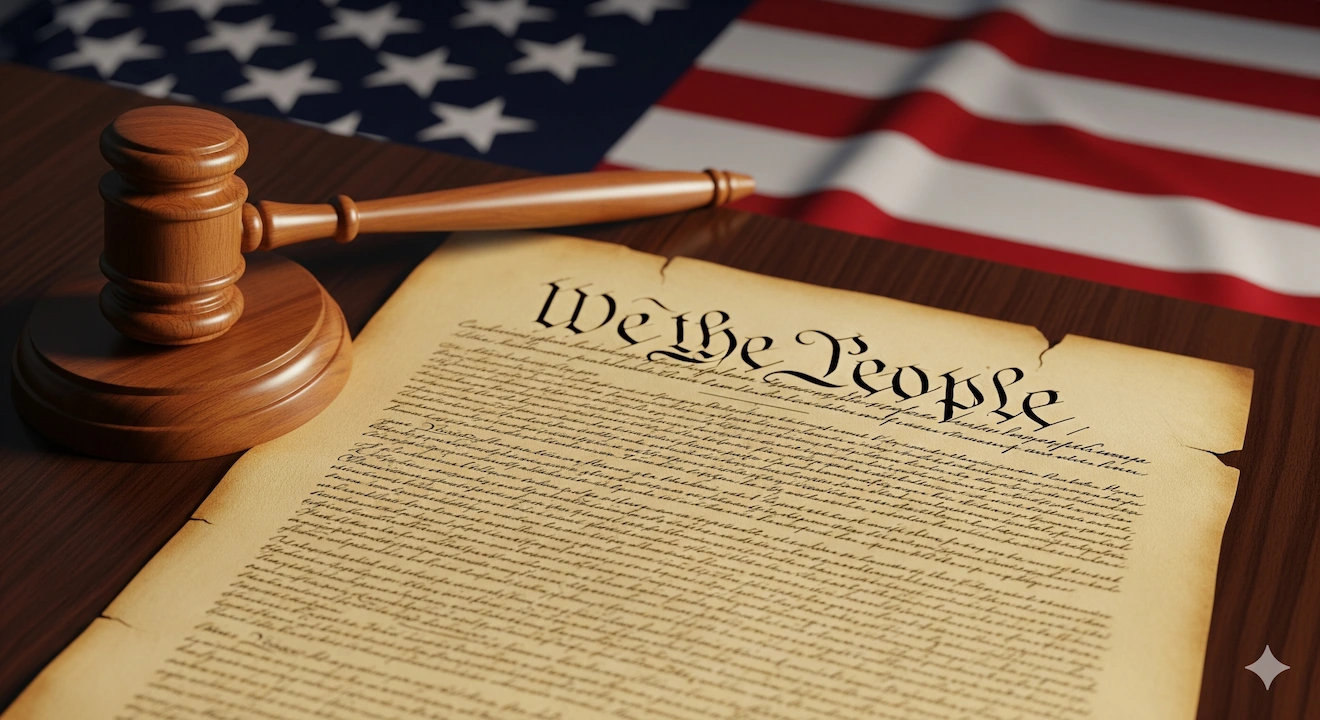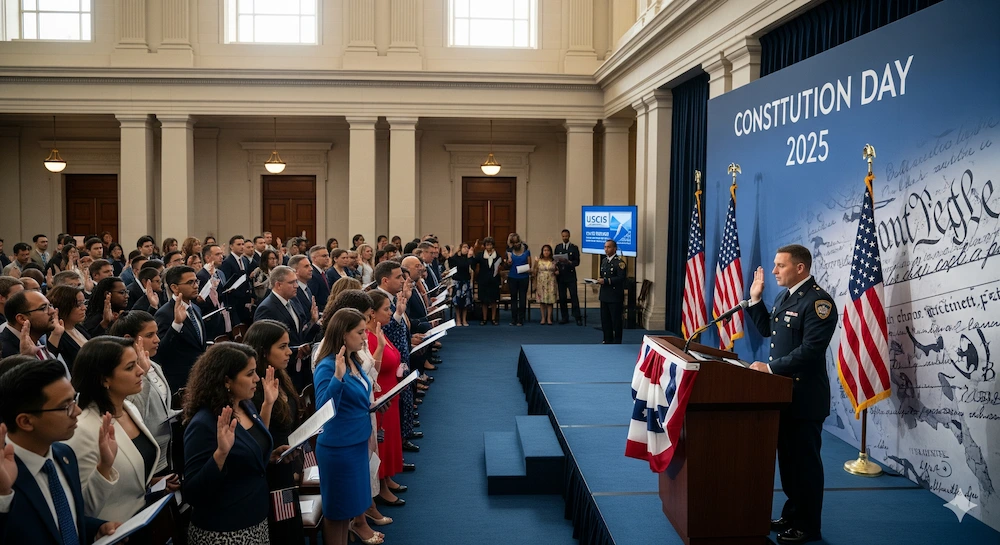GloNews10

Every year on 17 September, the United States observes Constitution Day and Citizenship Day, a national event that commemorates the signing of the U.S. Constitution in 1787. It also serves as a reminder of the rights and citizenship responsibilities that come with U.S. citizenship.
In Constitution Day 2025, as America faces new challenges in politics, immigration, and civic life, the observance becomes a powerful reminder of why the Constitution remains the foundation of democracy and why citizenship still matters in shaping the nation’s future.
The roots of this observance go back to 17 September 1787, when delegates signed the Constitution in Philadelphia. In 1940, Congress first recognized “I Am an American Day,” which later evolved into Citizenship Day. By 2004, federal law officially combined it with Constitution Day and Citizenship Day.
Today, all publicly funded schools and federal agencies are required to provide educational programming about the Constitution every year on this date.

Citizenship is not only about legal status but also about shared responsibility. On Constitution Day 2025, it’s important to reflect on what being an American means:
Across the United States, Constitution Day 2025 will be observed through:
The U.S. Constitution is often described as a “living document” because it continues to guide the nation even as times change. Since its ratification, the Constitution has been amended 27 times to address issues such as voting rights, civil rights, and presidential terms. On Constitution Day 2025, Americans are reminded that while the original document was written over 230 years ago, its adaptability ensures it remains relevant in today’s world.
For example, the Bill of Rights continues to protect freedom of expression and religious liberty, while amendments like the 19th Amendment guarantee women the right to vote. Today, debates over privacy, digital rights, and voting access show how constitutional principles apply in new contexts, proving that citizenship responsibilities require active engagement with ongoing national conversations.
In 2025, civic engagement is no longer limited to town halls or classrooms. Social media platforms, online forums, and digital campaigns now play a central role in spreading awareness of constitutional values. Educational institutions are using technology to make constitutional learning interactive through online quizzes, e-learning modules, and virtual debates.
At the same time, misinformation challenges the democratic process. That’s why U.S. citizenship today requires practicing digital literacy — ensuring that the information one consumes and shares supports democratic integrity. Constitution Day provides the perfect opportunity to teach younger generations how to protect democracy not just at the ballot box, but also in the digital sphere.
In 2025, the U.S. is navigating debates over immigration, voting rights, and constitutional interpretation. U.S. citizenship remains the unifying thread that holds the nation together.
As global tensions rise and democratic institutions face scrutiny, Constitution Day 2025 reminds us that the Constitution is not just a historic document but a living guide for the nation’s future.
Constitution Day 2025 is more than a commemoration — it is a civic call to action. By understanding the Constitution and embracing the duties of citizenship, every American contributes to strengthening democracy.
This 17 September, whether by teaching children about their rights, attending a naturalization ceremony, or simply reading the Constitution, let’s honor the document that defines freedom and the citizenship responsibilities that sustain it.